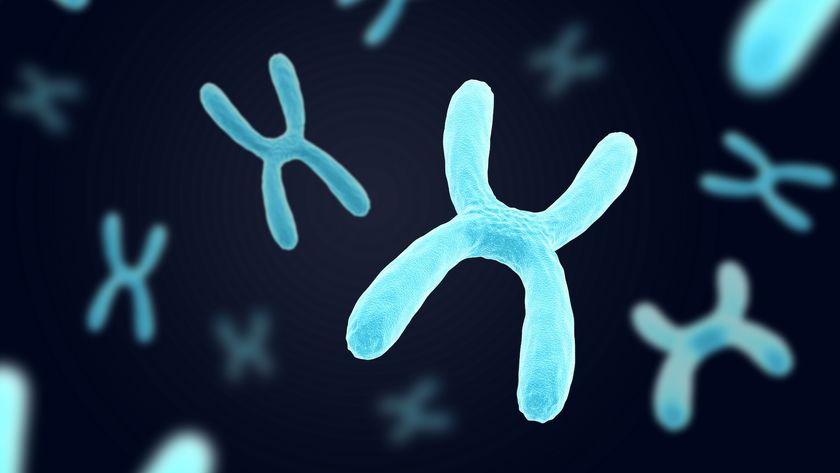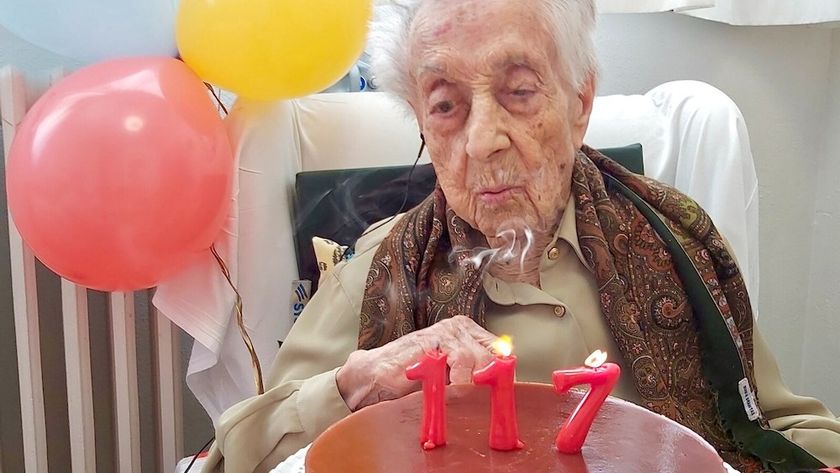Social Isolation May Hurt Health of Gay Older Adults

Despite good incomes and access to health care, gay older adults in California have more health problems than their straight counterparts, according to a new study.
The report, released today (March 30) by the University of California, Los Angeles Center for Health Policy Research, found that aging gay men, lesbians and bisexual people in California have higher rates of diabetes, hypertension, and disability than older straight adults. Mental health problems were also more prevalent in older gay Californians compared with heterosexuals.
Social isolation and lack of family support might be the reason for these extra health problems, study researcher Steven Wallace, a professor of public health at UCLA, said in a statement accompanying the report.
Nationally, isolation is a big problem for older gay and lesbian individuals, said University of Pittsburgh geriatric psychiatrist Jordan Karp, who was not involved in the research.
"We know that living alone and not having supportive children or a biological family is a risk for depression and anxiety," Karp told LiveScience. Less than one-fifth of lesbian, gay, bisexual and transgender (LGBT) elders live with a partner, compared with half of straight seniors, Karp said. [Read: Getting It Straight on Gay Mental Health]
Health risks
The California report relied on data from the 2003, 2005 and 2007 California Health Interview Survey, which interviews 50,000 randomly chosen Californians about health topics every two years. People who self-identified as LGBT to surveyors were most often male and skewed toward the younger end of the 50 to 70 age group. They had more education and higher incomes than the population as a whole, and they were more likely to be white.
Sign up for the Live Science daily newsletter now
Get the world’s most fascinating discoveries delivered straight to your inbox.
Just over 8 percent of LGBT respondents had insurance, similar to the 10.6 percent rate in heterosexual Californians. That's troubling, the researchers wrote, because more money and education usually corresponds with insurance coverage. In this case, however, the relatively affluent LGBT Californians were no better off than the population as a whole.
Both gay men and lesbians were just as likely — and in some cases more likely — to see a doctor regularly and get medical treatments. Nonetheless, the gay population was at higher risk for many chronic illnesses than the heterosexuals surveyed. Gay and bisexual men were 1.17 times more likely than straight men with similar demographic characteristics to have high blood pressure. They were also 1.28 times more likely to have diabetes and 1.24 times more likely to have a disability. Fewer than 25 percent reported mental health distress, but that number was still 1.45 times higher than the same figure in straight older men.
Lesbians and bisexual women had fewer extra risks, but they were 1.35 times more likely than straight women to experience psychological distress and 1.32 times more likely to be disabled.
HIV, which affects approximately one out of five gay men in California, likely contributes to some of the health problems identified, the authors wrote. The strain of dealing with discrimination may also contribute to both mental and physical health problems, they said.
Lack of family support is another factor: The survey found that half of gay and bisexual men in California live alone compared with 13.4 percent of heterosexual men. Lesbians were more likely to live with a partner than gay men. However, more than 25 percent of lesbians live alone, compared with about 20 percent of straight women.
Improving care
Access to medical care is improving for gay and lesbian older adults, the report found, but the quality of that care is still in question. Older LGBT individuals may hesitate to disclose their sexual orientation or talk about their sexual behaviors with health professionals, fearing homophobia, Karp said.
Services that target the LGBT population need to be aware of the higher risk of chronic conditions in this group, the report recommended. The researchers also called for policies that would extend full health and financial benefits to same-sex partners. Currently, same-sex partners cannot get Medicaid and Social Security spousal benefits.
Meanwhile, Karp said, medical professionals should work to improve care for LGBT individuals.
"Instead of just inquiring about marital status, we should be enquiring about partnership status. We should be more complete in taking a sexual history," he said. "We need to make our approach more inclusive."
You can follow LiveScience senior writer Stephanie Pappas on Twitter @sipappas.

Stephanie Pappas is a contributing writer for Live Science, covering topics ranging from geoscience to archaeology to the human brain and behavior. She was previously a senior writer for Live Science but is now a freelancer based in Denver, Colorado, and regularly contributes to Scientific American and The Monitor, the monthly magazine of the American Psychological Association. Stephanie received a bachelor's degree in psychology from the University of South Carolina and a graduate certificate in science communication from the University of California, Santa Cruz.











